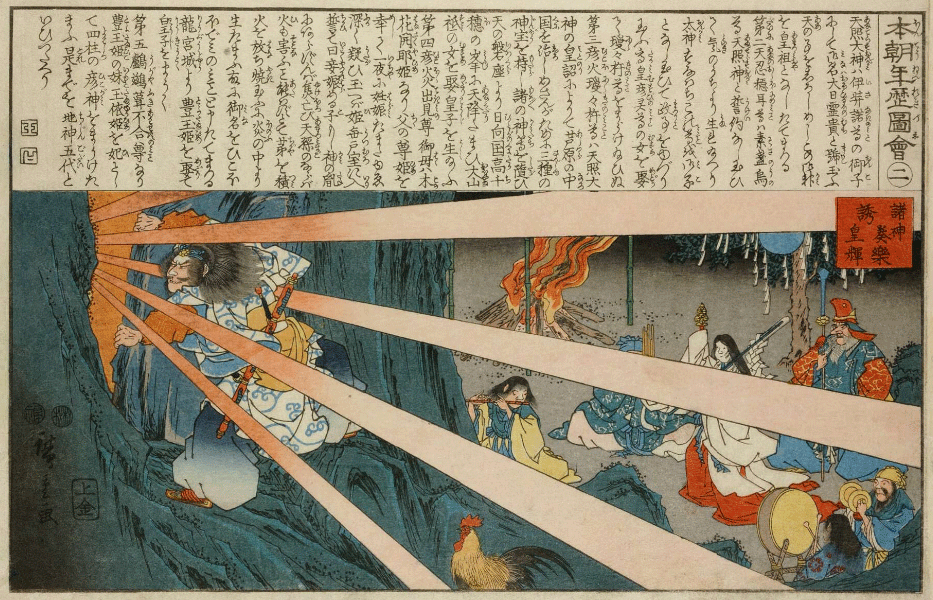
Image: Woodblock print. History, myth and legend. The Gods luring Divine Light, Amaterasu, with music. 1 of 2. Nishiki-e on paper.© The Trustees of the British Museum
Reflections of the Sun Goddess: the Evolution of a Japanese Myth Over Time
- 19 January 2023
- 6:00pm – 7:00pm GMT
- Online
- https://www.sainsbury-institute.org/events/reflections-of-the-sun-goddess-the-evolution-of-a-japanese-myth-over-time/
- 01603 597507
- sisjac@sainsbury-institute.org
- Tweet
THIRD THURSDAY LECTURE - SAINSBURY INSTITUTE
Dr Joshua Frydman (Assistant Professor of Japanese, University of Oklahoma and author of The Japanese Myths: A Guide to Gods, Heroes and Spirits)
About the Talk
When we talk about mythology in the English-speaking world, we often talk about “dead” myth systems—those that are no longer actively in use, such as Greco-Roman, Norse, Egyptian or Celtic mythology. Because these mythologies are not around anymore, it is difficult to understand them as living systems that develop over time alongside and within their cultures. However, as Japan is one example of a culture with a still living mythology, explaining the Japanese myths requires us to understand how they have changed over the centuries from the forms we see recorded to those we can witness today. This talk will look at one example of this, specifically mythology surrounding the Japanese deity Amaterasu, Sun Goddess and progenitrix of the imperial family. By understanding how views of Amaterasu have changed and developed over time, we can learn how to understand mythology more broadly as part of a vibrant and continually evolving culture.
About the Speaker
Joshua Frydman is Assistant Professor of Japanese in the Department of Modern Languages, Literatures and Linguistics at the University of Oklahoma. A scholar on ancient Japan, his interests include the development of writing systems (in East Asia and worldwide), and the role of transregional and global cultural interactions in the development of premodern societies as viewed through literature and art. He is the author of The Japanese Myths: a Guide to Gods, Spirits and Heroes (Thames & Hudson, 2022) and Inscribed Objects and the Development of Literature in Early Japan (Brill, 2023).
Image: Woodblock print. History, myth and legend. The Gods luring Divine Light, Amaterasu, with music. 1 of 2. Nishiki-e on paper.
Online lecture, via Zoom.
50 min lecture followed by Q&A.
Free and open to all, booking essential.
To check your time zone conversion if you are joining from outside the UK, click here.
If you struggle to access the internet and would like to view the lecture, please contact us on +44 (0) 1603 597507.
